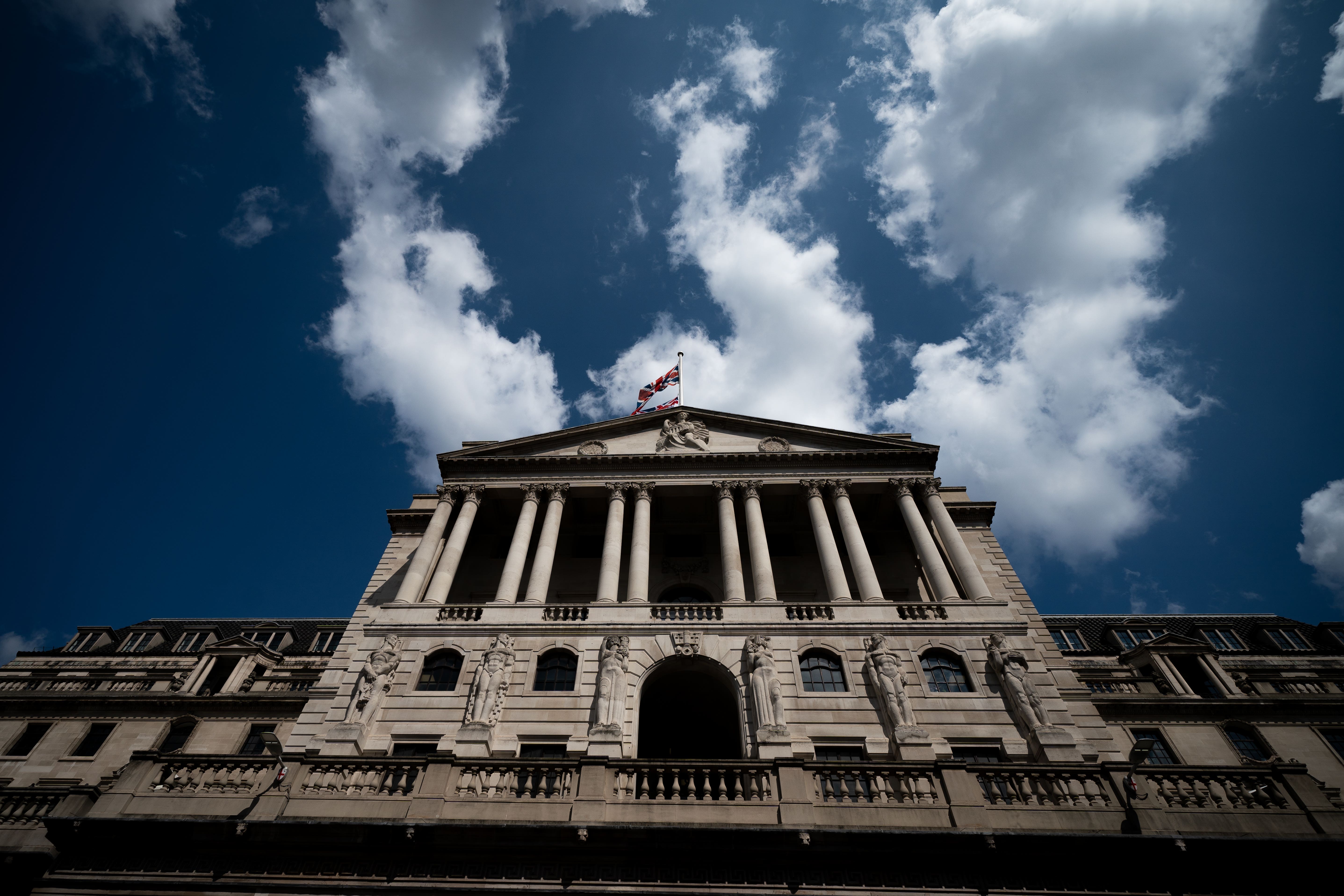UK interest rates kept at 5% as Bank of England says ‘vital’ inflation stays low
Eight of the nine members on the Bank’s Monetary Policy Committee voted to keep the UK base rate unchanged.

The Bank of England has left interest rates unchanged at 5%, but said it could reduce borrowing costs “gradually over time” if inflation stays low.
Eight of the nine members on the Bank’s Monetary Policy Committee (MPC) voted to keep the UK base rate unchanged on Thursday.
The decision to pause comes a month after the central bank cut rates from 5.25%, instigating the first reduction since 2020 and delivering good news to borrowers facing higher costs.
Andrew Bailey, governor of the Bank of England, said on Thursday: “Inflationary pressures have continued to ease since we cut interest rates in August.
“The economy has been evolving broadly as we expected.
“If that continues, we should be able to reduce rates gradually over time.
“But it’s vital that inflation stays low, so we need to be careful not to cut too fast or by too much.”
The MPC, which uses interest rates as a tool to control inflation, said it wanted to make sure that persistent inflationary pressures were squeezed out so that price rises remain at the 2% target level.
Consumer Prices Index (CPI) inflation hit 2% in May and June this year, before edging up to 2.2% in July and August, according to official figures.
CPI is expected to tick up further over the rest of the year as the impact of falling energy bills softens.
For the eight members who voted to keep rates the same, a slowdown of price and wage rises, and the UK economy growing in line with forecasts, was evidence that a gradual approach to easing rates was necessary.
They also noted some uncertainty in the global outlook, such as weaker demand for oil leading prices to fall, which warranted the need for caution.
One member, Swati Dhingra, voted to reduce rates to 4.75% because she felt that inflation had been on a downward path for some time, and that it would take time for lower rates to filter through to the economy.
Most economists and the financial markets had been expecting the Bank to keep rates unchanged this month, with many anticipating the next 0.25 percentage point reduction to come when the MPC next meets in November.
Meanwhile, America’s central bank, the Federal Reserve, voted for a bigger 0.5 percentage point reduction of its interest rate on Wednesday, its first cut in more than four years.
Bookmark popover
Removed from bookmarks